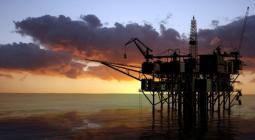Norway’s giant oil fund ditches stake in Australia's AGL over fossil fuel concerns.

Trillion-dollar fund also puts BHP on ‘observation list’ carrying risk of future divestment.
Norway’s gigantic sovereign wealth fund has dumped its stake in the Australian energy company AGL, which owns coal-fired power stations including the carbon-intensive Liddell plant in New South Wales, after tightening up its rules on fossil fuels.
Norges Bank, which manages the US$1.1tn Government Pension Fund Global, has also put Australian mining giant BHP on an “observation list”, placing it at risk of divestment in the future.
The fund, which is so big it owns an estimated 1.5% of shares listed on the global stock exchange, invests the spoils of Norway’s own North Sea oil bonanza.
However, over the past few years it has adopted progressively stricter rules about investing in fossil fuels.
Its latest rules, brought into force in December, allow it to exclude or put on observation companies that get 30% or more of their income from thermal coal, base 30% or more of their operations on thermal coal, produce more than 20m tons of thermal coal a year or produce power of more than 10,000MW from thermal coal.
It is believed AGL has been disqualified because of its coal mine at Loy Yang in Victoria.
The company had hoped to close its elderly Liddell coal-fired plant in 2022 but after a political bunfight has pushed the date into the following year.
Glencore, which has assets in Australia and produces more than 130m tons of coal a year, has also been struck from the fund’s list of permitted investments.
BHP also holds extensive thermal coal assets, although it has recently been moving towards selling them.
Norges Bank said the fund had sold out of companies it has put on the banned list.
At the end of last year it owned a 0.46% stake of AGL, worth roughly A$65m.
“For several of the companies of which exclusion is now being made public, the market situation, including the liquidity of individual shares, has meant that it has taken a long time to sell the shares in a reasonable manner,” Norges Bank said.
“That explains why a long period of time has passed between some of the decisions and the publication.”
Activist shareholder group the Australasian Centre for Corporate Responsibility said it showed that AGL and BHP, which it described as “iconic” Australian companies, were both “well behind the times”.
The group’s executive director, Brynn O’Brien, said the companies did not have credible strategies to move to more climate-friendly business models.
“Sophisticated investors like the Norwegian sovereign wealth fund look past the feelgood advertising and flimsy climate commitments of companies like AGL and BHP and see that coal businesses have no future,” she said.
“They also know that coal investments are a direct threat to the profitability of other sectors in which they invest, like agriculture, property and tourism. The Norwegian fund has clearly not seen enough progress from either of these companies, and in the case of AGL has reached the decision that continuing to invest poses too great a risk.”
O’Brien said it was part of a trend of investors expressing their concern about the policies of Australian fossil fuel companies.
More than 50% of investors in the oil and gas company Woodside recently supported a non-binding motion calling on it to adopt climate targets consistent with the Paris agreement not just for its own greenhouse gas emissions, but for the “scope 3” emissions released when its customers use its products.
Similar motions were backed by 43% and 37% of shareholders of Santos and Rio Tinto, respectively.
13 May 2020
The Guardian




